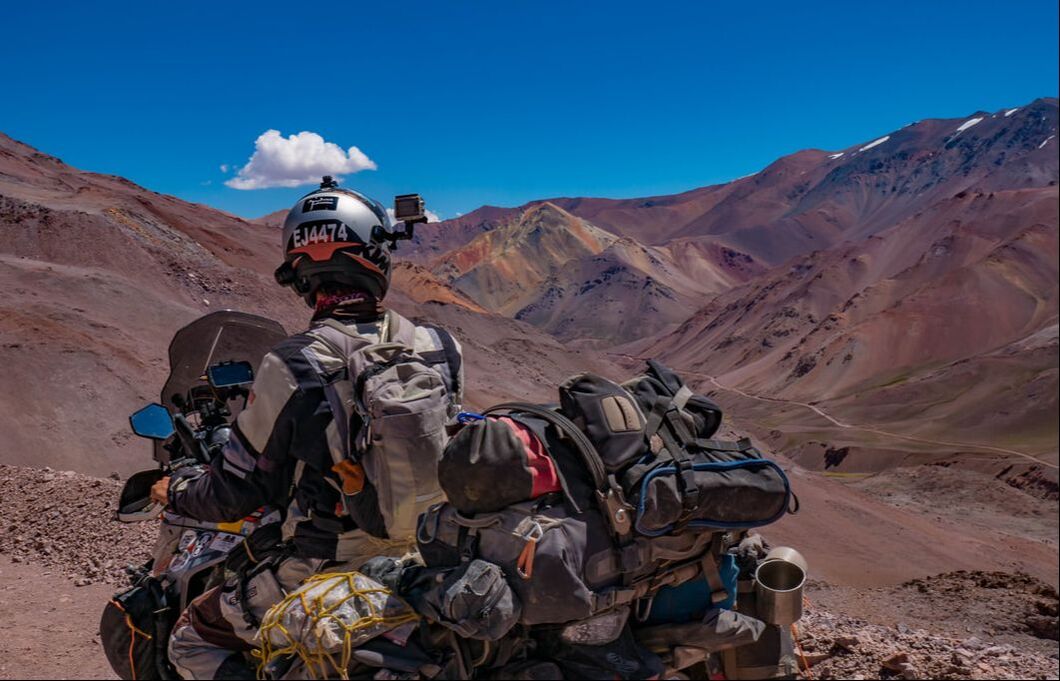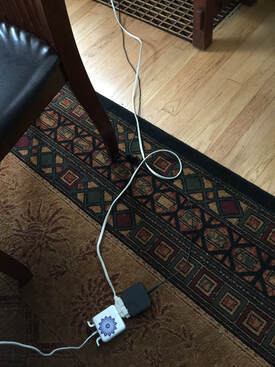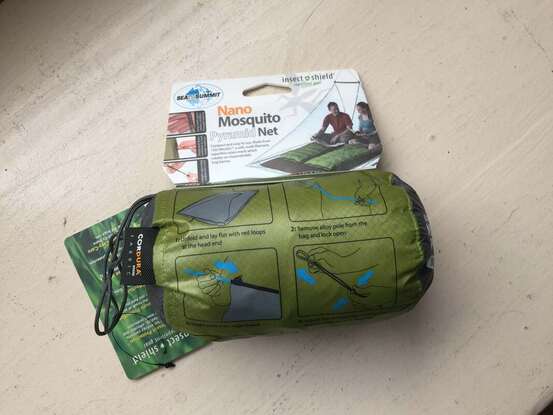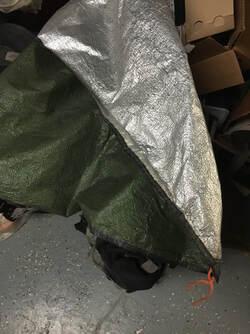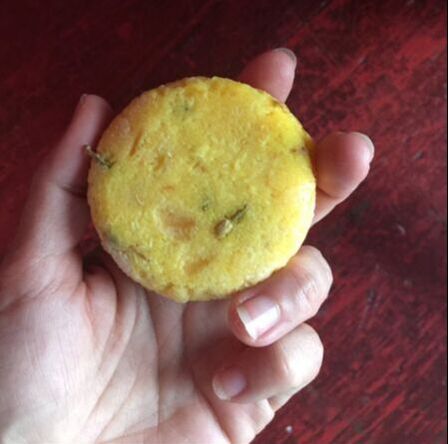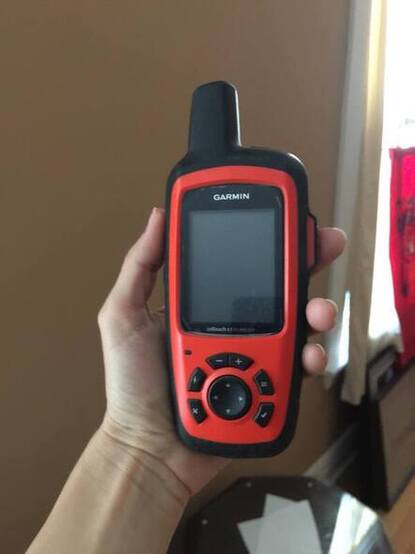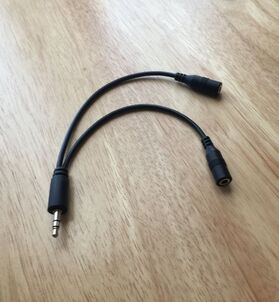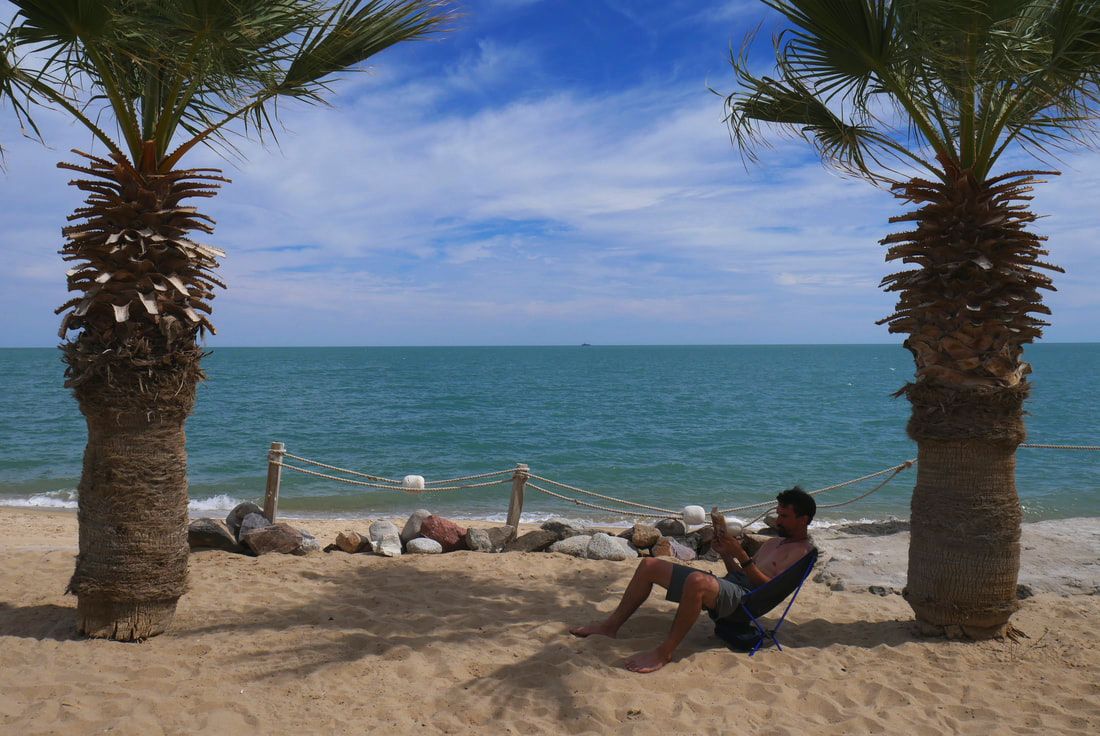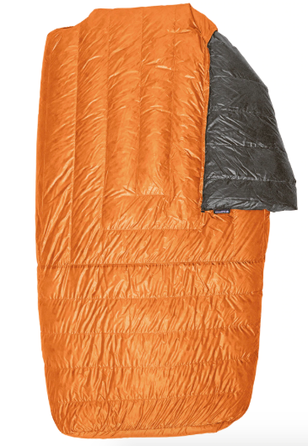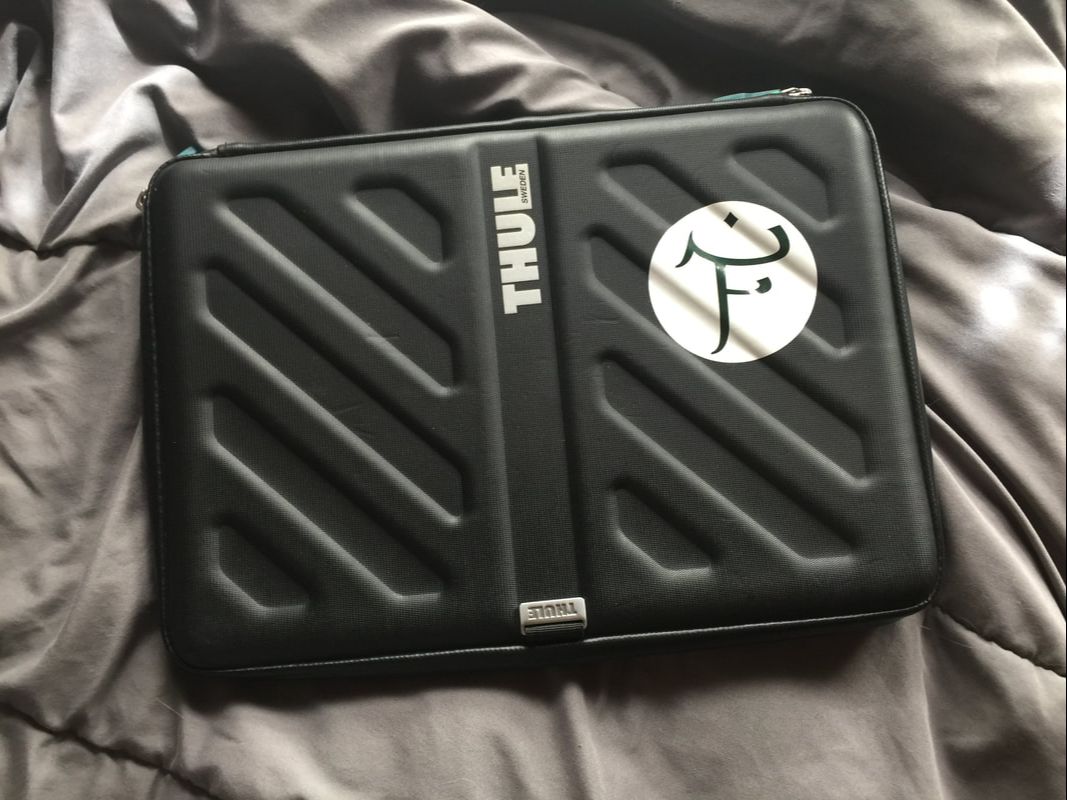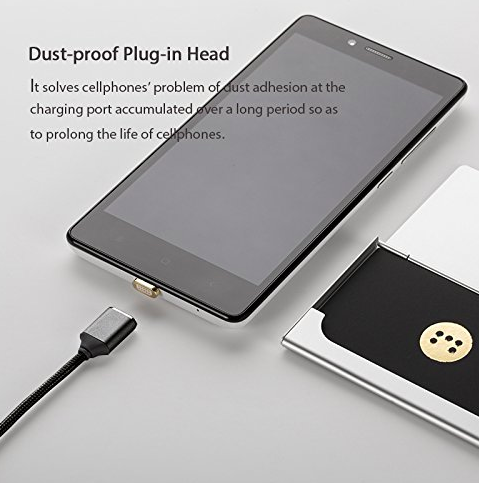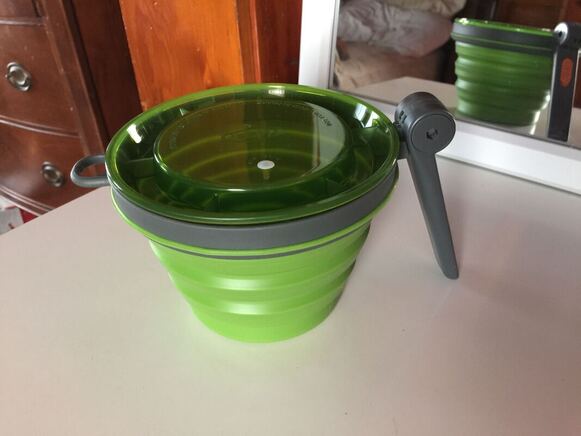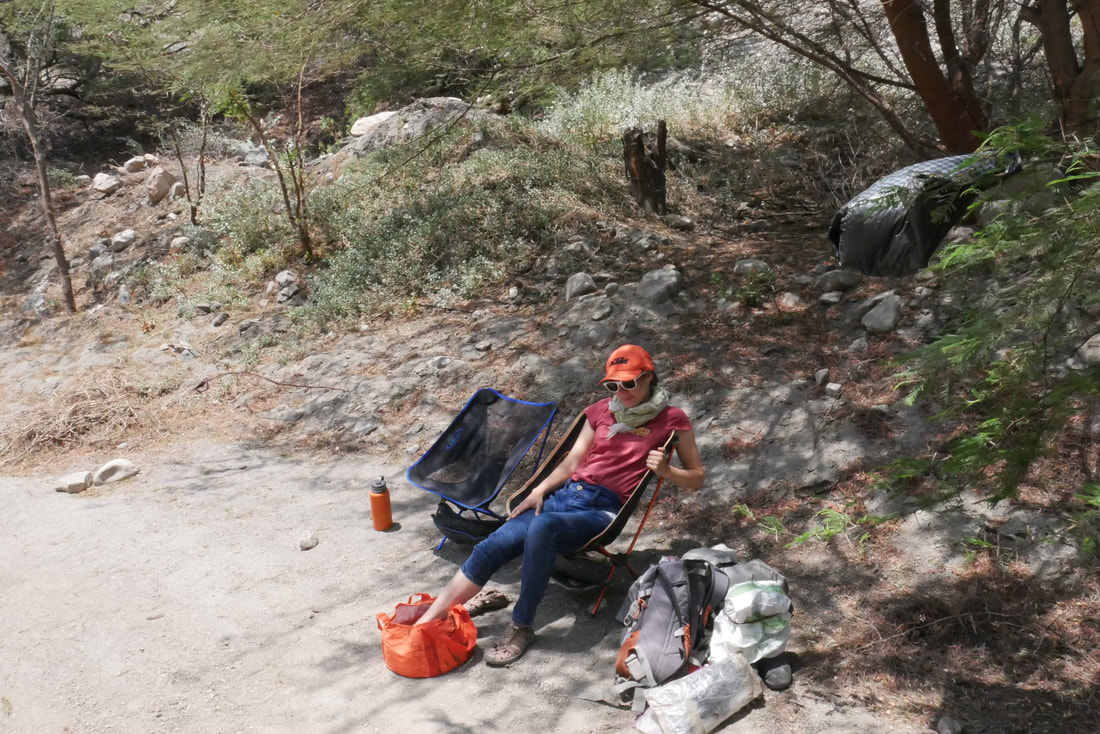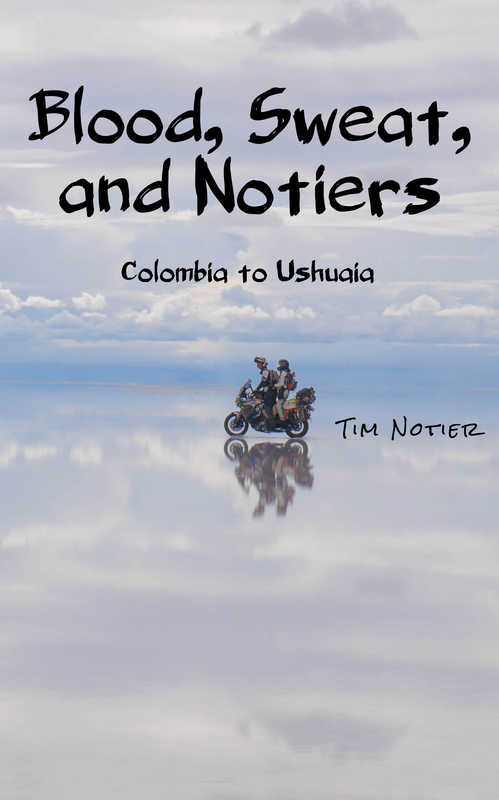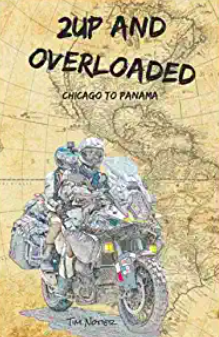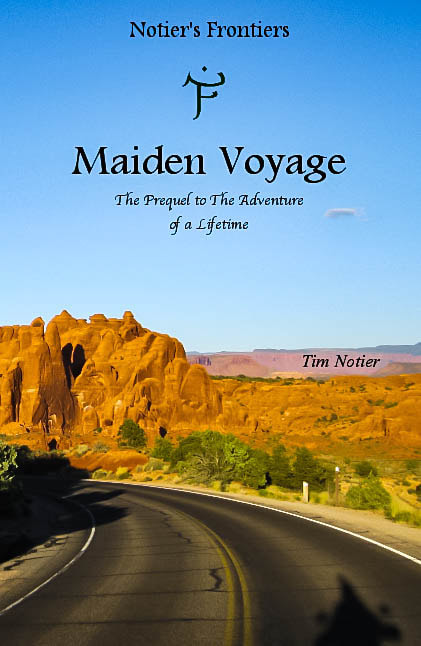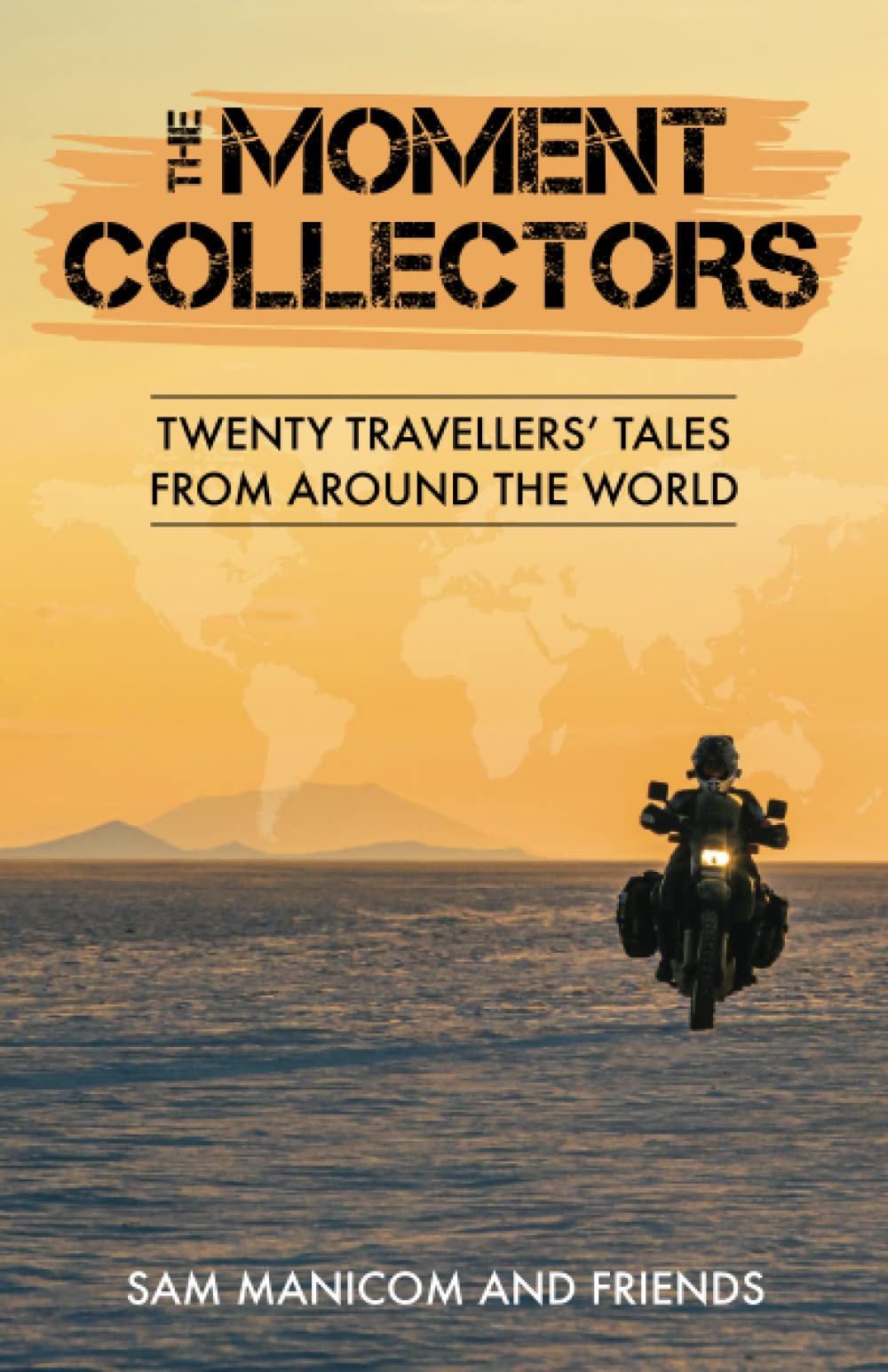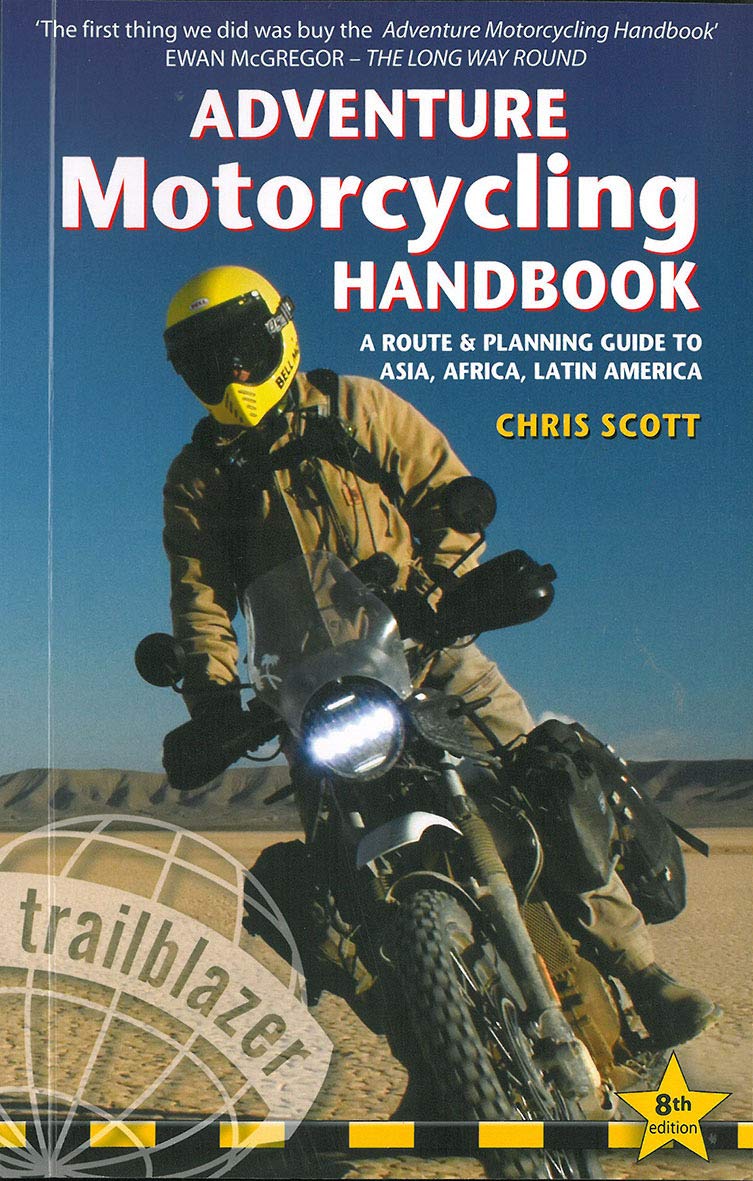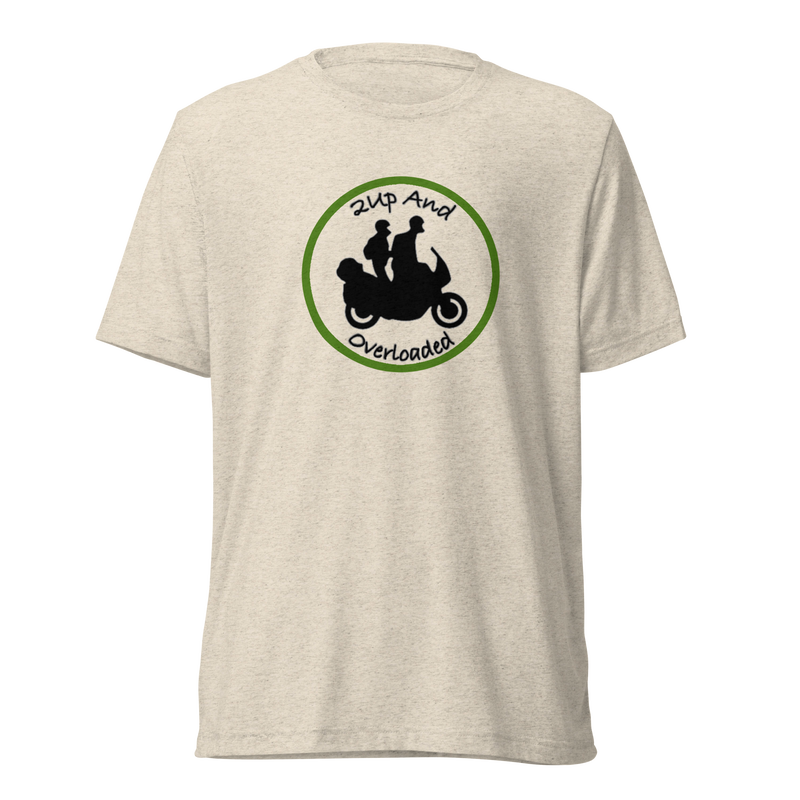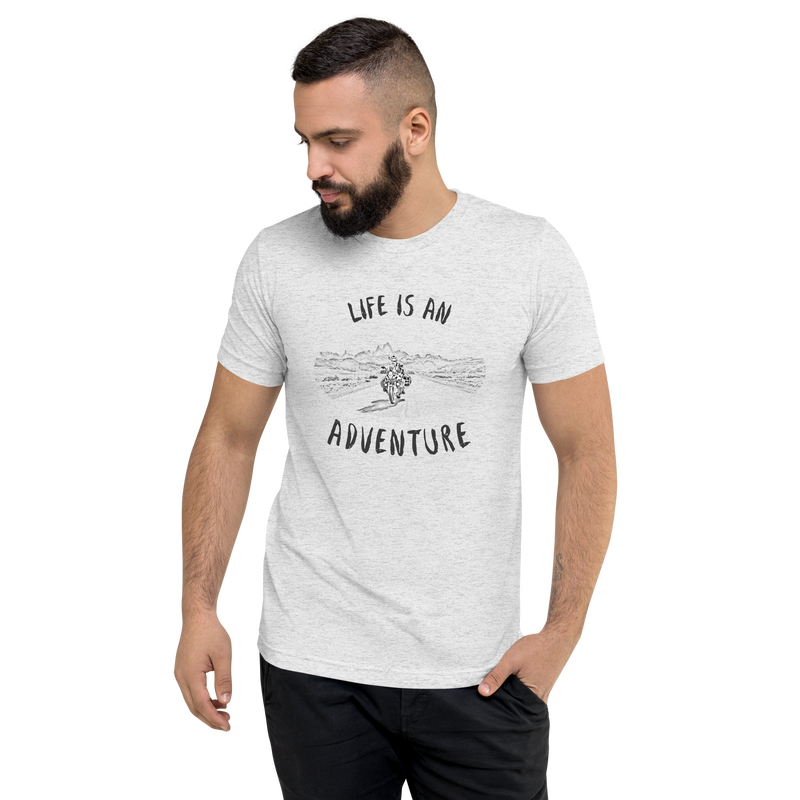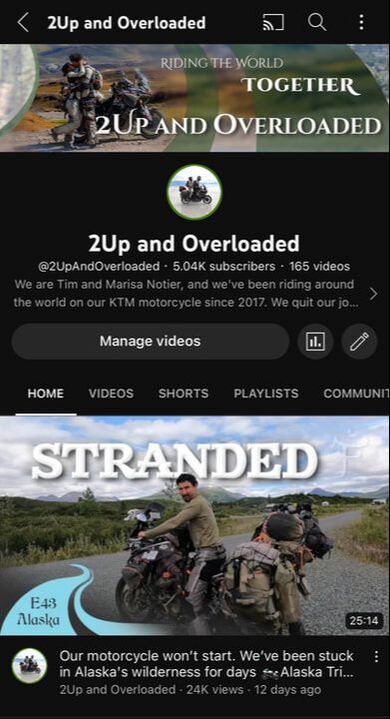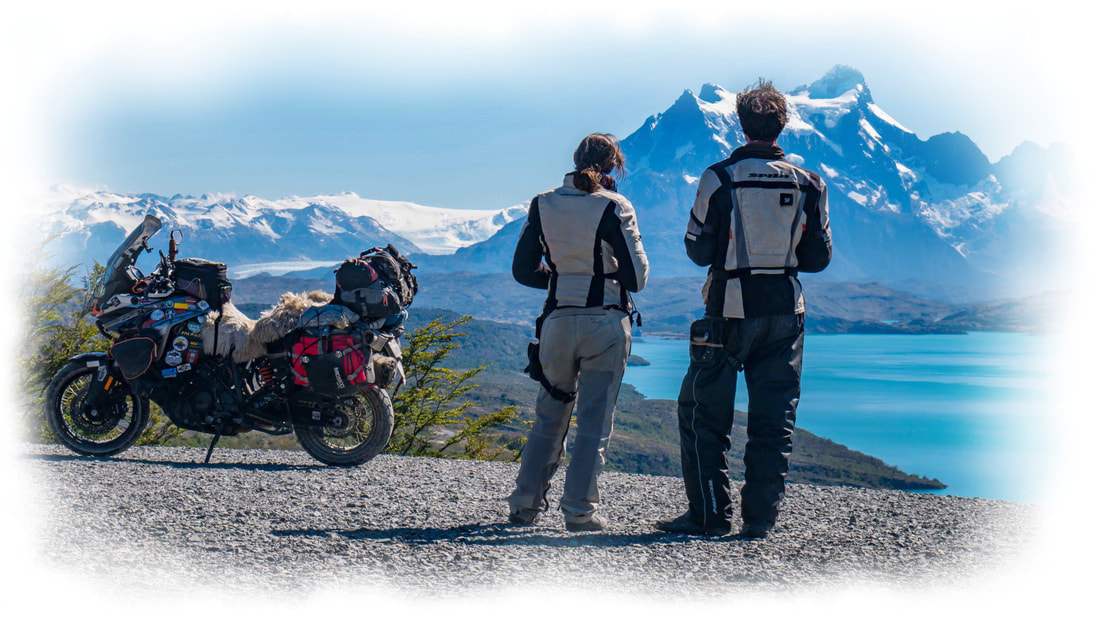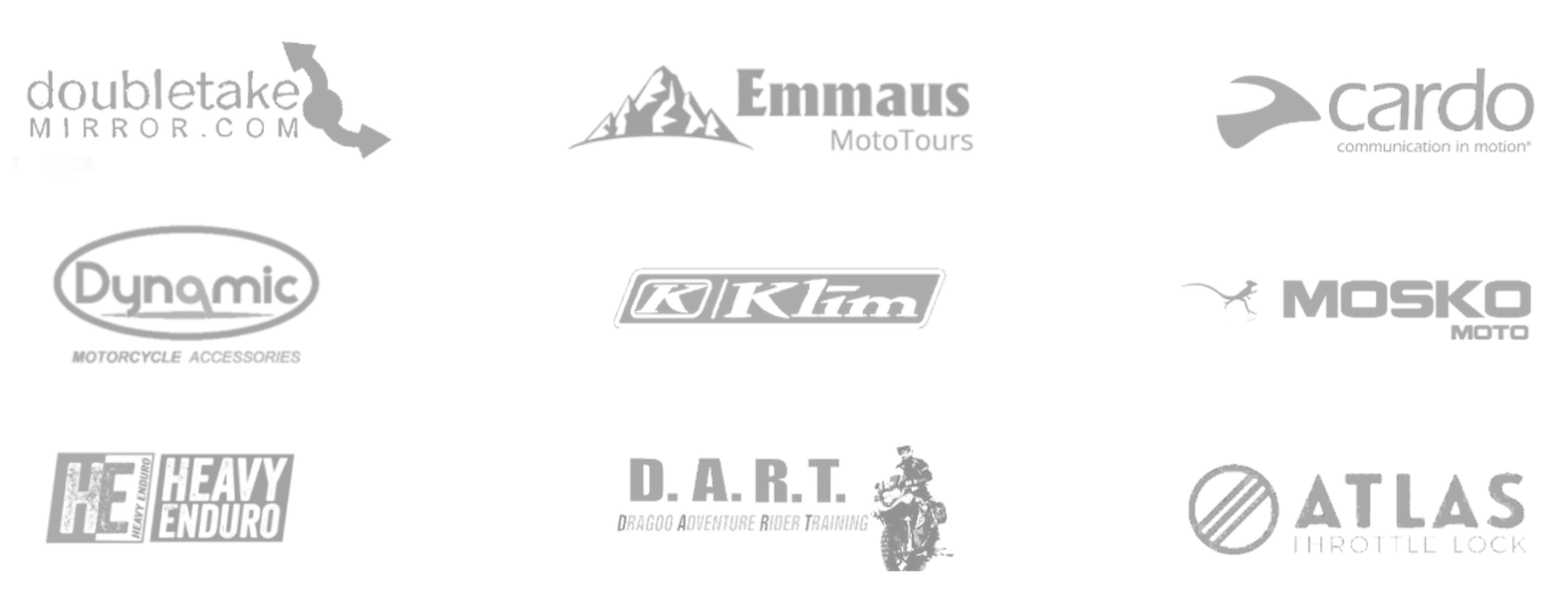By MarisaAfter twenty months of being on the road, going from our home in Chicago all the way down to the southernmost point in Argentina, I’d say Tim and I have learned a thing or two about living as travelers. Especially since both of us have to pack everything we’d ever need onto one motorcycle, we really have gotten to know what’s absolutely essential, and what isn’t worth its weight. We all know that if you’re packing for a long-term trip, you should bring good shoes, sunscreen, and if you’re overlanding in a vehicle, you’ll need tools and extra parts… but what about those little things that are often overlooked? That’s what this list is for. Now that we have to prepare for crossing the continent of Africa, I’ve been going over all our gear and making new adjustments. And I’ve taken note of ten essential items that have helped us along our journey so far, or things that I wish someone had told me about sooner. #1 - An Extension Cord
This is where an extension cord is invaluable. Even just a 6 foot one does the job nicely for us. We’ve met other travelers on the road who watched us bring out our extension cord, and as if it were made of gold they said, “Ohhh... that’s something we need.” #2 - A Fake Wallet
You very quickly realize that these officials will make up any excuse to keep you there, always saying you’ve done something wrong, but then finally concluding that if you just pay this one astronomical fee, you could get out of it. They’ll take your driver’s license, passport if they can get it (don't ever give it), and they may even want to take your license plate to make sure you don’t just drive off. We’ve seen it all, but I can tell you that having a wallet where they can plainly see that you don’t have all the money they thought you did, they will most likely convince them to take the little cash that they can get. I only wish we knew of this trick sooner. #3 - VPNVPN stands for Virtual Private Network, and although this isn’t an actual object, it’s something that I’m so glad we got before traveling because it protects us online. It makes it so that when we log on to a hotel’s Wifi connection or connect our phone to a local network, no one else can access our passwords, credit card information, etc. Basically, how it works is you pay a VPN company a monthly subscription fee (we use Private Internet Access) and then whenever you sign on to a Wifi network, you can turn on their app and it will connect you to a specific location in the world instead of the IP address of where you physically are. It’s the same concept that hackers use so that they can’t be traced, but this is a legit practice that you can use to make sure that whatever you’re doing online can’t be looked at by prying eyes. Another great benefit of having a VPN on your devices is that you can set your location to be your home region so that everything that pops up online will be in your language and the news and headlines will be relevant to your home country, not the country you’re in. You can always turn it off and see what’s going on locally, or for something really cool, you can say you’re in Japan and suddenly get YouTube ads all in Japanese. But the best thing of all… if you’re subscribed to a streaming service (like Netflix), then put yourself back at home and you’ll be offered all the same shows as if you never left. No more being locked out of Netflix or limited to Spanish-speaking shows because you’re in Mexico! #4 - Mosquito NetThis is something that I wish I’d brought to Latin America, but didn’t because I didn’t think it would be necessary. After all, I wasn’t going to Africa (well, not at the time anyway). But the truth is that if you are going to any tropical region of the world, there is a chance of getting malaria there, and probably other mosquito-borne diseases too, such as Dengue Fever or Chikungunya. Many people mistakenly think there are vaccines to prevent you from getting these serious, and sometimes fatal illnesses, but there aren’t, and the best way to prevent them is to avoid getting bitten by mosquitoes. Malaria-carrying mosquitoes come out at night, but I thought that as long as I was in a hotel room, I’d be fine. That was naïve of me since I didn’t account for the hotel windows to have torn-apart screens, or broken panels of glass, or doors made of wooden slots. I should have never assumed that these “indoor” places would be truly indoors. And in Latin America (and also in the southern United States), there are Kissing Bugs, Triatominae, which can carry the Chagas disease (causes heart failure) and are known to live in the walls and rafters of buildings. They bite your face at night while you're sleeping, especially your lips (hence kissing bug). I have seen and killed several of them in Latin America, and for all of these reasons and all the creepy crawlies that are out there, I will never travel without my mosquito net in the tropics again. #5 - Reflective TarpWe got two of these, and they’re actually called Space All Weather Blankets, but I would never use this as a blanket. Though I suppose that’s possible, I would describe it more as a thick plastic tarp with one side being reflective, and this indispensable object has many great uses. First of all, it can be a rain cover for any object left outside, or it can further waterproof your tent in a downpour.
#6 - Solid ShampooIf you’re traveling in a large vehicle, then bringing bottles of liquid shampoo is not a big deal. But if you’re on a motorcycle, bicycle, or living out of a backpack, you soon realize that shampoo bottles are a heavy burden that constantly explode and get shampoo everywhere (especially when traveling in high altitudes or taking planes).
We also try to buy bars of Tide for washing clothes by hand, or bars of all-natural dish soap. You can’t always find them on the road, but they’re wonderful when you do. #7 - GPS with SOS and TextingLots of travelers now are using GPS devices, not to find out which roads to take (you can just use Google Maps offline, OSM+, or Maps.me on your phone), but for emergency purposes of having an SOS button. When pressed, the SOS button will send a rescue team to your exact location, which could be lifesaving. Some GPS systems are only good for emergencies. But our Garmin Inreach does more than that: it tracks every place we’ve been and puts it into a nice interactive map for us, and I also have the ability to send home messages every day (to tell my mother we’re settled down for the night), I can check the weather of my exact location, and in a lesser emergency, I don’t need to press the expensive SOS button to simply text friends in the area for help. They will immediately get our location and can come with a new tire, or a tow truck, or whatever we need. I absolutely love this piece-of-mind device (and my mother loves it too). #8 - Headphones Splitter Cable
#9 - Foldable ChairsIf you’re going to be spending any amount of time camping or in nature, small folding chairs are great to have. I was always someone who loved sitting on the ground, sometimes even without a tarp or blanket underneath me, and I told Tim that chairs are not necessary to bring on this trip. Just a big waste of space. And then he bought a G4Free chair, and he had this awesome comfy place where he could lay back and read on the beach, or watch the sunset, or sit beside the fire, or cook on our stove, and I'll admit I got jealous. Now that we both have one, I would never camp without them regardless of how much space it takes up on the bike. Also, when we’ve had to wait for hours for road closures to open, we just get out our chairs and open up a book and read in the shade of a tree while everyone else stands around. These chairs are great, except that our G4Free chairs have had minor breaks, but nothing a little superglue and duct tape couldn't fix. We bought ours two years ago and have put them through hell, so a little damage makes sense, but if you don't like this brand, then there are also tons of other folding chair companies out there like it. So shop around to find which you like best. #10 - Down QuiltThis is quite possibly my favorite item that we own. It was not cheap, but our down quilt (Enlightened Equipment) keeps us incredibly warm at night. I have camped throughout my life and just thought that being cold at night was a part of camping. Not so! Our double-wide down quilt packs down to nothing, is unbelievably light, but is also the warmest thing I’ve ever owned. Sometimes I even get hot, in Patagonia too!
#11 - Shockproof Computer CaseThese days, almost everyone travels with a computer, but not everyone realizes how much damage is being done to it by the constant vibrations of going down washboard roads. Before our trip, we actually destroyed a laptop when going down some very bumpy fire roads (it was even a Solid State laptop). So we now always make sure our computer is completely shut down when we ride. But we also purchased a shockproof and water resistant computer case for it (Thule), which has been great. It adds bulk to the dimensions of the computer, but I don’t have to worry about it anymore when we go over all those annoying Latin American speed bumps. #12 - Magnetic Phone ChargerThis one is particularly useful for if you use your phone as a GPS, and while you have it plugged into your vehicle to keep it charged all day, all the bumps and vibrations from the road can start to erode at the charging port. I’ve heard from many travelers that their phone’s charging port started to act up, and then eventually just died, meaning that they’d never be able to charge their phone again. What a disaster. In fact, this same situation started happening to us, but luckily someone told us about these tiny magnetic chargers that you put into the port on your phone (this may only be an Andriod thing, but check to see if someone makes iPhone ones). It makes it so that the road’s vibrations aren’t destroying the port anymore, and it works wonderfully. There are just a few problems with it: first, the cord can now blow off the port if it’s extremely windy (like in Argentina), second, you wouldn’t want to use it in the rain, and third, because it’s magnetic, little bits of metal or iron rocks can get stuck on there. But for saving your phone from complete disaster, these minor inconveniences have been worth it for us. Some Bonus ItemsIf you like to cook while on the road, then a potato peeler may be useful for all sorts of fruits and veggies, or a meat thermometer (especially if you’re going to be traveling in Argentina and want to cook up some of their amazing steaks). Lastly, someone recommended we buy a collapsible bucket and bring that with us. We did, and it was very useful for washing clothes, dishes, taking sponge baths out in the desert, and when I hurt my foot, we filled it up with icy water to soak my foot in. But we ended up ditching it when we discovered that our dry bag worked just as well. That being said, I'd recommend you have something durable and waterproof that can be used as a bucket or sink. I hope this list helps fellow travelers out there, and if you have some more great travel advice on the best things to bring, let us know on Facebook!
I'm sure we'll be expanding on this list as we travel through Africa, so stay tuned and we'll keep you posted on all our adventures. |
Follow UsRide with us from Chicago to Panama!
2Up and Overloaded Get inspired by the tale that started it all:
Maiden Voyage 20 author's tales of exploring the world!
The Moment Collectors Help us get 40 miles further down the road with a gallon of gas!
Become a Patron for early access to our YouTube Videos!
Subscribe to our YouTube Channel!
Subscribe to our Blog by Email
|
2Up and Overloaded
Join our clan of like-minded adventurers...
Proudly powered by Weebly
Designed by Marisa Notier

